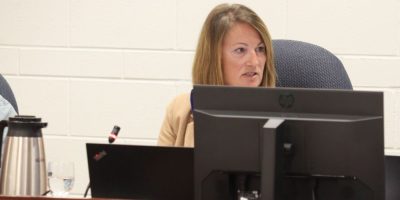
Updated May 29, 2024 @ 3:04pm
with files from The Canadian Press
The Trillium Lakelands District School Board (TDLSB), with schools in Muskoka, Haliburton and Kawartha Lakes, has joined other school boards in Ontario in a lawsuit against TikTok, Snapchat, and Meta.
They allege the tech giants are a disruption to student learning, and education in general.
"These companies have negligently designed and marketed addictive products that have disrupted our educational mandate and obligation to enhance student achievement and well-being.
Wes Hahn, Director of Education, TDLSB
In a letter to parents, Trillium Lakelands Director of Education, Wes Hahn, says social media products have rewired how students think, act, behave, and learn. As a result, he says educators are spending increased classroom time managing issues caused by social media. Hahn says they have seen increased phone use, bullying from the phone, addictions to some gaming, as well as a rise in student anxiety.
Hahn calls it, "a multifaceted problem that requires a multipronged approach." Restricting the use of devices in schools, he says, is just one action.
The Toronto Public, Toronto Catholic, Peel Public and Ottawa-Carleton Public — launched the original action in March. Trillium Lakelands, Catholic boards in Ottawa, Dufferin-Peel and York, the District School Board Niagara, Trillium Lakelands public, as well as Eitz Chaim Jewish day school in Toronto and Holy Name of Mary College School in Mississauga have joined the latest action.
The lawsuit calls on social media giants to make their products safer, compensate school boards for disruption to their mandate, and to support students’ fundamental right to education.
In March, Jodi Lloyd, chair of the Simcoe County District School Board (SCDSB), told Barrie 360 it was the board's intention to join the legal action but the SCDSB was just in a different time and place in the process.
The allegations in the lawsuits have not been proven in court.
A spokesperson for TikTok has said its team of "safety professionals" continually evaluate practices to support teens' well-being, while Snapchat has said it is happy with the role it plays helping friends stay connected as they face the challenges of adolescence.
A spokesperson for Meta, the parent company for Facebook and Instagram, said it developed more than 30 tools to support teens and their families, including tools that allow parents to decide when, and for how long, their teens use Instagram.
"These are complex issues, but we will continue working with experts and listening to parents to develop new tools, features and policies that are effective and meet the needs of teens and their families," the statement read.
Hundreds of school boards in the United States, along with some states, have launched similar lawsuits against social media companies.
The Ontario suits make a slew of allegations about how negligently designed social media platforms have upturned the education system.
Among them, they say more staff and administrator time is being spent on addressing compulsive student social media use, more money is going into the heightened need for digital literacy and harm prevention, and more resources are being spent on handling issues such as cyberbullying and online sexual harassment.
Students also struggle to spot misinformation, the suits allege, pushing teachers to spend time and resources to help vet what they see on their social media feeds and prevent them from adopting harmful ideologies they are exposed to on the platforms.
The school boards say they will not incur costs for the lawsuits unless they are successful.
Ontario Premier Doug Ford was critical of the initial lawsuits, saying in March school boards should put resources into students rather than a legal fight over "this other nonsense."
Education Minister Stephen Lecce backed up those comments Wednesday. He said the government was choosing to "collaborate with these enterprises."
He cited the government's plan to ban cellphone use during class time and block access to social media platforms on school networks and devices, and suggested school boards should have taken those steps themselves, "years ago."
"Instead of talking about it and litigating about, we opt to act decisively with a comprehensive plan," he said.
Teachers' unions have expressed skepticism about the province's move and said staff are hesitant to take phones away in case devices are lost, damaged or stolen.





